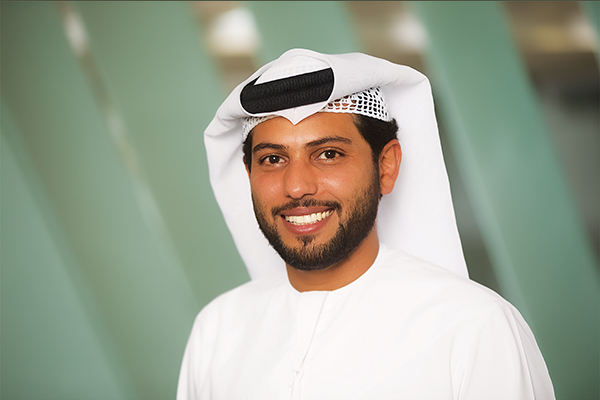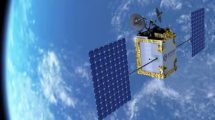
Khalid Al Kaf is Deputy Chief Operations Officer (COO) at Yahsat. His focus is on addressing the strategic operational outcomes that influence business performance and efficiencies of cost. Khalid is committed to effecting major changes in the performance and efficiency of Yahsat’s business as a whole. Prior to his new appointment, he held the post of Executive Vice President (EVP) within the company.
Khalid holds a BSc degree in computer engineering from Khalifa University (formerly Etisalat College of Engineering), and is currently pursuing an Executive MBA from INSEAD.
How did you come to join Yahsat?
I was recruited by Yahsat in 2017 to merge and lead its Operations team. I began my career at Etisalat as a Development Engineer within its Operations group and in 2006, moved to its start-up team to oversee the expansion of Etisalat into the Egyptian market. There, I worked in various capacities, as Application Developer, Development Manager and other senior management roles, before being appointed Director of IT Infrastructure & Operations to manage Etisalat’s IT infrastructure and operations for applications, hardware, network, B2B, software and IT capacity management.
At Etisalat, I was focussed on developing and implementing innovative solutions, besides leading major advances in revenue generation. In 2017, Yahsat approached me to amalgamate and lead its YGS Operations team.
How do you intend to improve and balance Yahsat’s position in the space industry?
Currently, we are doing very well on the financial front, with no losses. But the main objective is to achieve the largest possible capacity in Africa to grow our returns and market shares. We do this through partnerships to ensure our core capabilities are complemented with what others may do best. Our partnership with Hughes is a case in point. We have been working together since 2011, with Hughes providing the broadband ground systems for the Al Yah 2 satellite and the Al Yah 3 satellite. This has evolved into the Africa and Brazil JVs that capitalise on the unique value proposition from each party in the market and across the value chain. In 2019, we collaborated with Morvest to implement a new go-to-market model for Africa, offering direct contract-based subscriptions to consumers and small-to-medium enterprise (SME) customers. We also launched a YahClick partnership with Facebook on Facebook’s Express Wi-Fi platform, to expand its Wi-Fi product set.
After our acquisition of Thuraya, we are looking to widen the scope of our existing relationships within a much bigger footprint, besides actively seeking new partnerships.
Are there any plans for Yahsat to expand its satellite fleet?
Yahsat operates a fleet of five satellites at present: Al Yah 1, Al Yah 2, Al Yah 3 and Thuraya 1 and 2. In addition to these satellites, we supported the designing, testing and launching of the UAE’s first nanosatellite, MySat-1, aimed at training and educating the students of Khalifa University. Its successor, MySat-2, is scheduled for launch in Q4 2020. The students will go through all stages of operating the satellite, from design and model-making to building and launching, and eventually controlling and communicating with it. That’s all we can say at present.
What are some of the challenges ahead of you?
Prior to my appointment as Deputy Chief Operations Officer of Yahsat, I was the Executive Vice President of Operations. The various roles I have undertaken over the years have sharpened my focus on operational matters that are so vital to improving the overall business efficiency of the organisation. When I was working in more junior roles at the start of my career, I noticed that my superiors were reluctant to take risks in operations, due to the wide impact of changes across the business. Then, fifteen years ago, I was given the opportunity to work with a startup team setting up Etisalat in Egypt. I quickly learned that maximising efficiency required all established norms that I had accepted in the UAE business to be questioned.
I constantly challenged suppliers and service providers to deliver more. I looked at insourcing, outsourcing and technology as both improvement solutions and ways to improve bargaining positions. Through innovating in this way, we gained huge savings due to the scale of operational costs and delivered significant value to the business.
At Yahsat, I was able to use those skills effectively to demonstrate how innovations can have a profound impact on productivity and performance in a larger business. I challenged the established thinking in the same way that I did in Egypt and was able to influence a wider circle of innovators and thereby accelerate the performance of the overall business. My next big project for Yahsat is Smart Spending, which could streamline company operations and activities in a big way.














Add Comment